
Three-year EMBARK data show ELEVIDYS slows functional decline in ambulatory Duchenne patients, extending earlier 2-year efficacy findings.
Morgan Ebert is managing editor of Contemporary OB/GYN® and Contemporary Pediatrics® and joined the MJH Life Sciences team in December 2019. She graduated from Youngstown State University in 2019 with a bachelor's degree in journalism and a minor in political science. Prior to graduating, Morgan worked as the editor-in-chief of her college newspaper. She went on to work as an assignment editor at a broadcast news station in Youngstown, Ohio before joining the Contemporary brands. You can reach her at mpetronelli@mjhlifesciences.com.

Three-year EMBARK data show ELEVIDYS slows functional decline in ambulatory Duchenne patients, extending earlier 2-year efficacy findings.

FDA accepted centanafadine NDA for priority review, supported by phase 3 trials showing efficacy in children, adolescents, and adults with ADHD.

AAP updated guidance supports therapeutic hypothermia for term infants with moderate to severe HIE, emphasizing early initiation and specialized care.

The AAP released its 2026 childhood immunization schedule, maintaining evidence-based vaccine recommendations and expanding guidance across routine, catch-up, and risk-based care.

Findings from phase 3 SHORE and COAST 2 trials showed amlitelimab met key efficacy end points in moderate to severe atopic dermatitis, supporting planned regulatory submissions.

FDA-cleared Flowflex Plus 4-in-1 home test detects RSV, influenza A/B, and COVID-19 in adults and children as young as 6 months.

Results from a large US cohort study found no association between community water fluoridation and birth weight, providing reassurance about exposure during pregnancy.

Influenza antiviral use among hospitalized US children declined during the late COVID-19 pandemic despite guideline recommendations.

A national survey found most patients with chronic inflammatory skin disease rely on flare-based care and report concerns about long-term topical steroid use.

Analysis of nearly 900 million hours of monitored infant sleep shows rapid stabilization of sleep patterns in the first year of life.

FDA grants 510(k) clearance to a portable neonatal incubator designed to support thermoregulation and keep preterm infants close to mothers.

A large 2026 meta-analysis found no association between prenatal paracetamol (acetaminophen) use and autism, ADHD, or intellectual disability in children.

The phase 3 SPACE trial showed fremanezumab reduced monthly migraine days vs placebo in pediatric patients with episodic migraine.

Phase 3 SCOUT-HCM results showed mavacamten significantly reduced LVOT gradient vs placebo in adolescents with obstructive HCM.

This recent FDA clearance expands the use of the iotaSOFT Insertion System for pediatric use.

New AAP guidance affirms mother’s own milk as optimal for very low birth weight infants, citing reduced NEC and infection risk and outlining donor milk use.
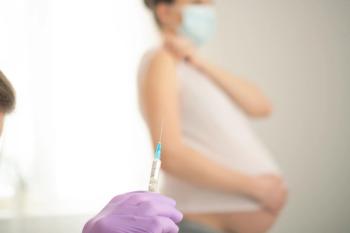
Maternal influenza and TDaP vaccination during pregnancy was associated with fewer influenza- and pertussis-related hospital and ED visits in infants younger than 6 months.

New dietary guidelines stress whole foods and reduced processing, with expanded, age-specific guidance for infants, children, and adolescents.
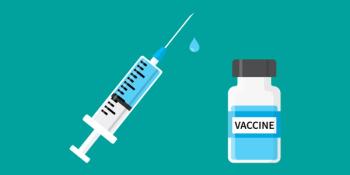
ACIP recommends use of GSK’s pentavalent MenACWY-CRM/MenB-4C vaccine when MenACWY and MenB are indicated at the same visit.

FDA approved caplacizumab for pediatric patients ≥12 years with acquired TTP, supported by retrospective data showing 80% remission.

A look back at the FDA submissions and regulatory decisions in the pediatric health care space from December 2025.

View our Q4 2025 recap of standout pediatric news from FDA regulatory updates, clinical trial results, and expert commentary.

Prenatal exposure to hot, humid conditions was associated with significantly reduced child growth, with effects far greater than heat alone.

National EHR data show vitamin K nonreceipt among newborns nearly doubled from 2017 to 2024, raising concern for preventable bleeding risk.

Teen use of alcohol, cannabis, and nicotine remained stable in 2025, while daily energy drink use rose and heroin and cocaine use showed small increases.

A pediatric First Seizure Clinic model reduced time to specialist evaluation to days, enabling earlier diagnosis, testing, and treatment decisions.

Parents support early peanut introduction but remain confused about timing, purpose, and risks, highlighting the need for clearer pediatric guidance.

Phase 3 data show the Viaskin peanut patch improved desensitization vs placebo in children aged 4 to 7 years, supporting a planned FDA BLA in 2026.

The FDA warns retailers over failure to remove recalled infant formula, urging stronger recall practices to protect infants and young children.

A large meta-analysis suggests well-planned vegetarian and vegan diets can support healthy growth in children but require attention to key nutrients.

Published: March 22nd 2023 | Updated:

Published: May 9th 2022 | Updated:

Published: August 21st 2025 | Updated:
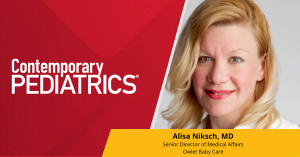
Published: October 1st 2025 | Updated:
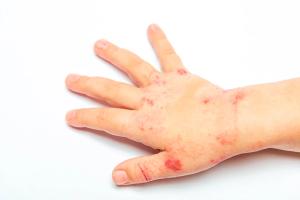
Published: January 21st 2026 | Updated:
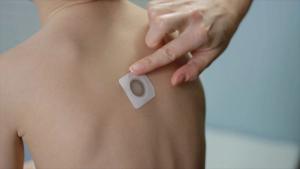
Published: December 17th 2025 | Updated: